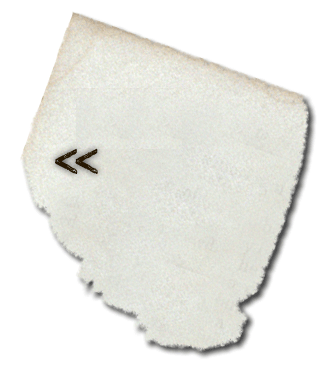Dear Adriana,
I read your memoir, My Mother’s Funeral, while hunting in Alabama. As I turned the pages with great difficulty wearing woolen gloves and perched in a tree stand in twenty degree weather, I read about your mother’s sad beginnings as a young duped bride in Colombia. And as I read, I watched blood-red and drab-brown cardinals court each other down below. How typical, I thought, the bright males out in front, the drab females in the shadowed scrub, unseen, yet moving mountains behind the scenes. And just as I came upon your description of cardinals and your own mourning, “The cardinal wrapped my grief under its scarlet robe, then off it flew” (23), I thought again to myself, How chilling, the similarities. Despite our different cultures, and despite our different geographies, the human experience--as you point out, Adriana--is always the same.
My mother lost her mother, my beloved grandmother, this past year. While I grieved for my grandmother tremendously, watching my own mother’s grief is what truly upended me. Your explorations of a daughter’s grief in your memoir helped me understand my own mother’s pain. In the chapter, “Rigor Mortis,” you ponder your mother’s “coldness” and mentally time her rigor mortis to your frantic flight home to Colombia. My mother also described this fear of her mother’s corporeal leaving. She described this experience to me and the way she had felt her mother—already stiffened from Parkinson’s disease—become cool to the touch. And as I read “Rigor Mortis,” I was in the middle of confronting my own experience with the phenomenon. I looked down to my felled buck lying one hundred yards in the distance and thought, How long could he lie there waiting for me to pick him up? When would I be able to stroke his soft fur, say goodbye to him in a proper respect, honor him for feeding my family? My hunting partner said that we would get him later, that I shouldn’t climb down just yet, that I would scare all the other game away if I did. But I only wanted to be with him. Sit with him before he fell away from this earth. I didn’t want him to die alone.
While cleaning my deer at dusk, I imagined your mother cleaning a whole human skeleton. Gutting a deer was child’s play by comparison. But I thought of the same impulse of all mothers--the instinct to survive, to provide, to feed the needs of her children. Whether it is to break a chicken’s neck as an “effective hen executioner” (226) for a birthday dinner, or to help her child with a science project, the impulse is always the same: Love. These may be violent images to attach to, but nonetheless, they are the ones that never left me as I read your memoir. The hauntings of life: unrequited love, real or imagined abandonment, the sins of the father. Adriana, you uncover these mysteries not with the swing of a magician’s cape, but with the raw visceral scraping and peeling away, as if human flesh from bone, in an attempt to get to the marrow of the truth.
“A thick green onion soaked in oil” made me laugh as I remembered my Lebanese mother-in-law doing the same job with a greased pine nut on her grandchildren. Wherever you are in the world, a mother’s job is always the same. In this way your book transcends all geographical boundaries because this book is the universal story of family, of motherhood, of waking up to who and what our mothers (ourselves?) are as private individuals with very private dreams.
And you remind us of this truth constantly: How universal a mother’s struggles are, how familiar. How broadcasted and common as the sports and music transmitted through radios across the world--like your mother’s obsession with fútbol or boleros. Heartbreaking in any language--well, not quite. Not the Spanish butcherings of Nat King Cole or the Beatles, your mother had thought. But Connie Francis? Well, maybe. Only a woman could hit those harmonics. Harmonize with those heartstrings of longing. Match those chords of pain. Your mother knew this, Adriana, and you were perceptive enough at a very young age to record it in your memory.
Eating whole fish fried, again, communicates across the world. I close my eyes and swallow the image of eating sardines whole, like the sultanas from Israel and Lebanon. I can smell the fish frying, I can see my mother-in-law squatted down low and fanning the fire. Again, this book resonates in any language, in any culture--like music does, like food does, like a mother’s sacrifice will always. Your memoir contains the collective memory of all human experience: Loving, suffering, waiting, burying.
Thank you,
Jenni Nance


